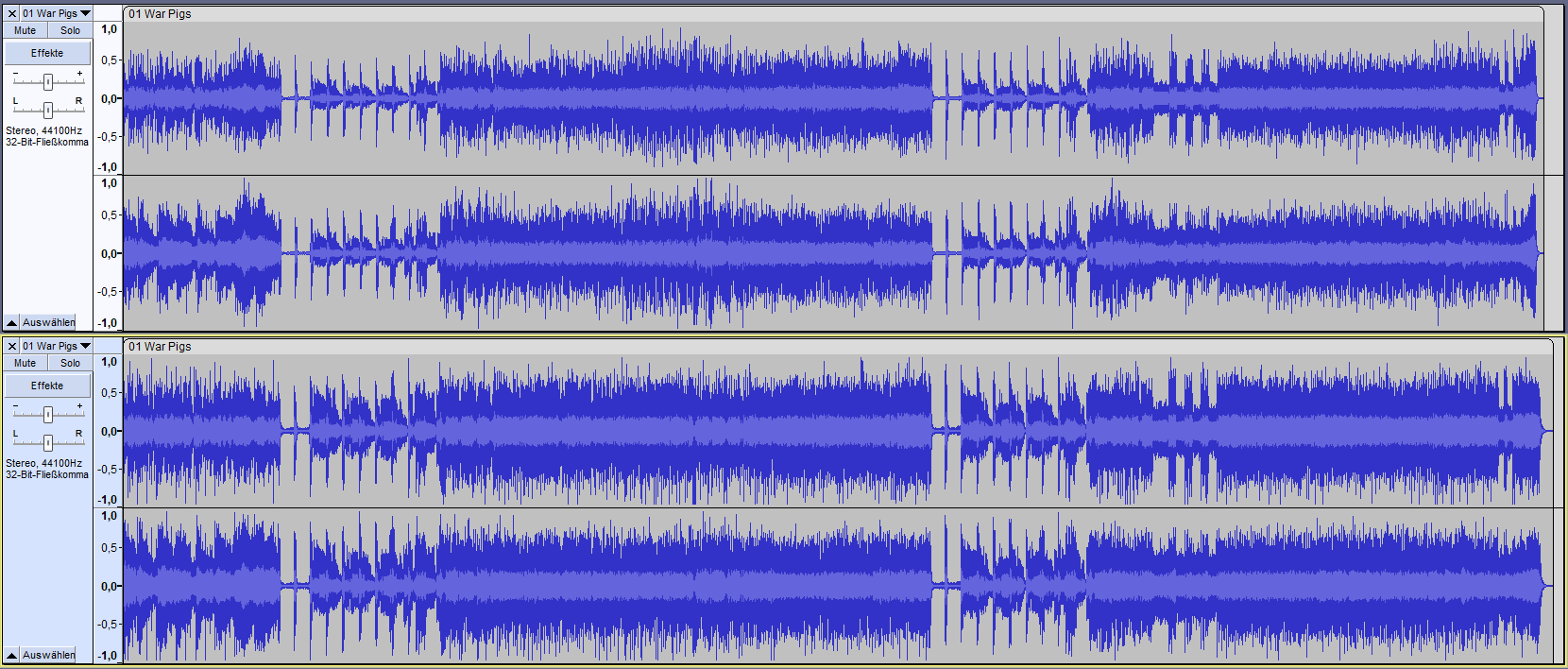I think I have to reconsider my previous position on this matter.
I recently added all the Beatles bootleg albums by Prof. Stoned. to elaborate: Prof. Stoned applied his demix magic (using AI spectral separation to extract the individual audio lines from a mixed track) on the first 6 studio albums from the Beatles. especially for the early albums as far as I know there were only mono mixes and oldschool stereo mixes available (with hard separation of the vocals and instruments to one or the other channel).
in the Musicbrainz entries for the albums I linked the tracks to the recordings he used as a source according to his infos. but recently I found out that the official 2022 rerelease of “Revolver” also used a AI demix process as well as the upcoming rereleases of the Blue and Red album. for the 2022 Revolver release new recordings were added to the database.
revisiting the MB definition of a recording it states
Generally, the audio represented by a recording corresponds to the audio at a stage in the production process before any final mastering but after any editing or mixing.
https://musicbrainz.org/doc/Recording
I guess we will see more new demix mixes in the future. I don’t feel comfortable anymore with my previous position to simply categorize this as a remaster. especially when the number of audio channel changes or in this case distribution of vocals and instruments to the channels changes fundamentally.
visiting the style guideline for recordings it states
A group of audio tracks used in a recording can be mixed and possibly edited in a different way. For example, the volume or tone of individual tracks may be altered, or effects may be applied to them. The result is often labelled on a track list as a remix, mix, dub, overdub or version, and should always be given a new recording in MusicBrainz.
and
It may be the case that very similar released tracks have different numbers of audio channels. The most common audio channel configuration is stereo (two channels; left and right). However, there are several common audio channel configurations used in recordings, including mono (one channel), quadraphonic (four channels) and surround sound (various multi-channel configurations).
These different configurations should generally be distinguished by using separate recordings. However, the original multi-channel recording should be used when multiple channels have been combined into a single channel without actually creating a new mix from the source audio tracks. A similar exception should be made where a mono channel has been split into two stereo channels - for example, in Duophonic recordings.
https://musicbrainz.org/doc/Style/Recording
and if one should add new recordings for these demix tracks, which relationship should one use to link them to the source recordings and demix artist?
https://musicbrainz.org/relationships/recording-recording
the “edit” relationship seems to be the only that fits? I saw that the Revolver 2022 tracks uses the “remix” relationship, which would be an argument to use it here as well. but MBs definition of remix doesn’t really apply here or does it?
https://musicbrainz.org/relationships/artist-recording
here I would use the mix and mastering engineer relation to link it to Prof. Stoned.
looking forward to your thoughts on this.
